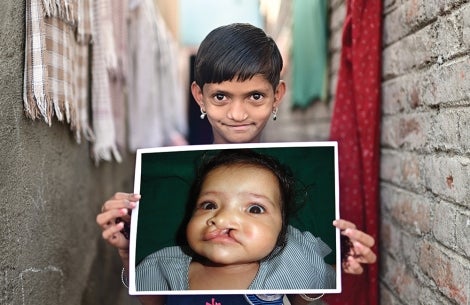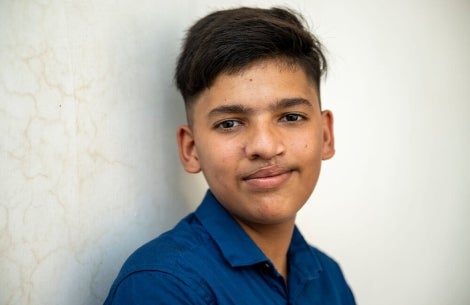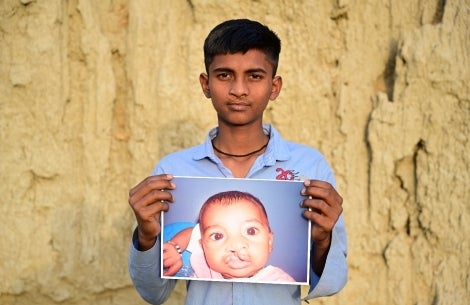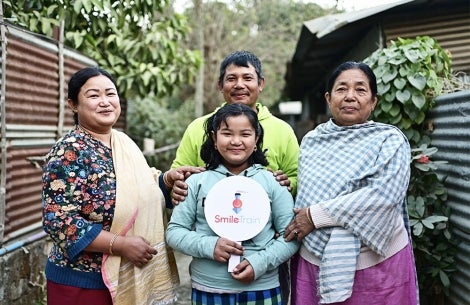Dr Mayuri Kalyanpad: From Patient to Doctor
She’s been on the journey. Now she’s dedicated to making the way easier for others
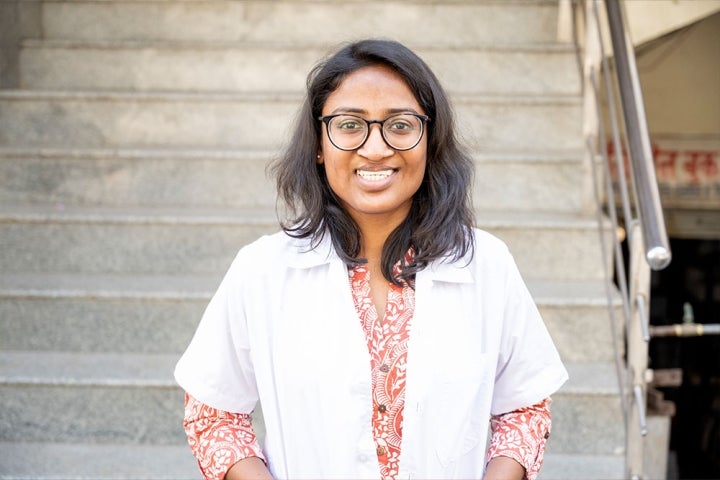
Dr Mayuri Kalyanpad from Maharashtra, India, was a Smile Train patient as a teenager and just became a doctor herself! In honour of International Women’s Day, we asked this cleft heroine to share her story in her own words. She is our inspiration today and every day, and once you hear her story, we know she will be yours, too.
My cleft came as a surprise to my family because we have no history of clefts. We didn’t have much money, but my father still saved every rupee he could to give me the surgeries I needed as a small child. I am forever grateful.
Though he did manage to pay for my initial cleft surgery, it did not happen at the earliest possible time. One of the side effects of that is that I struggled to speak until my parents dropped me off in reception. Being around other children all day turned out to be just the speech therapy I needed, and I learnt to speak very fluently there.
I never really had trouble making friends as a child, but my nature has always been toward introversion, so I never felt sure whether people accepted me for who I am or not.
I only ran into problems when I went to boarding school for secondary school. There was discrimination there in favour of the “good-looking” students, and they just did not give me any attention as compared to others, no matter how bright I was.
My cleft also began causing problems for me outside of school at this time. I love chess, but my sports teacher wouldn't allow me to play at the national or even the local level. He always said you don't have medical fitness, so you can't play chess. The same thing happened with dance. I was good at dance (I love it now also!), but I couldn’t do it in front of so many people; I would only do a few steps inside when no one was watching.
I always had issues with communication as well. One of my friends is a very great speaker. She can just go on and go on, so I asked her to speak for me when she's with me. Whenever we meet, I give responsibility to her to speak for the two of us.
Changing Tracks
It wasn’t until I was in ninth grade that my doctor told my father about Smile Train. I still needed another surgery on my upper lip, so we went to Bembde Hospital, our local Smile Train partner, and were extremely happy with the results and grateful that it was free.
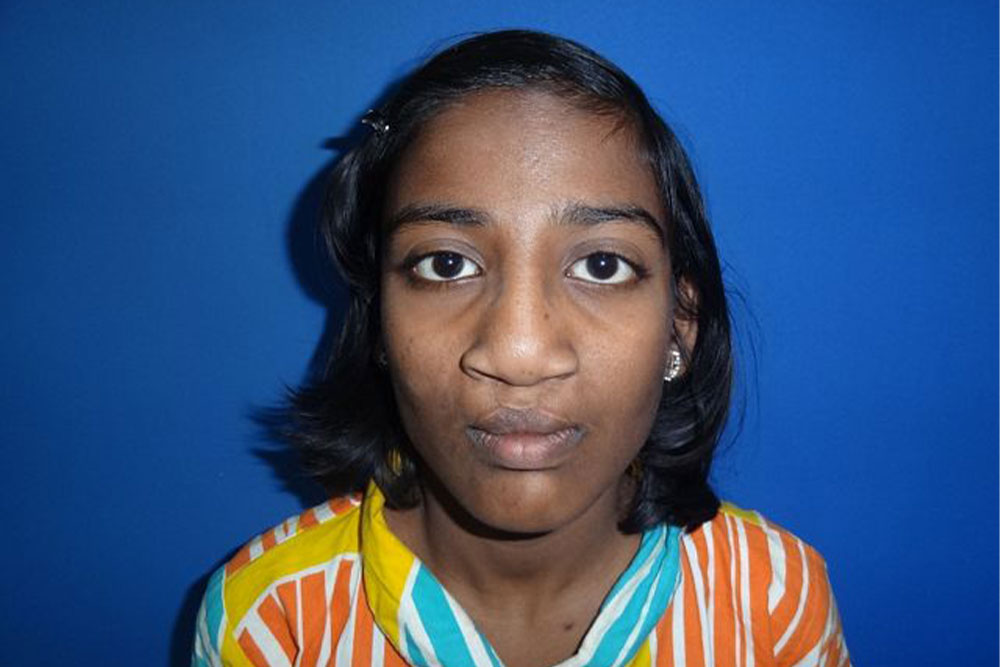
It is probably no accident that, the very next year, my father inspired me to change my focus from maths to biology. I was always mad for mathematics and had spent my whole life wanting to be an engineer. But my father said that I was treated by really good doctors, and not everyone is so lucky. My whole family agreed. It was a hard transition for me at first; maths is all logic and calculations and biology felt to me like it is all made up, but I stuck with it and was thrilled when I was accepted into medical school.
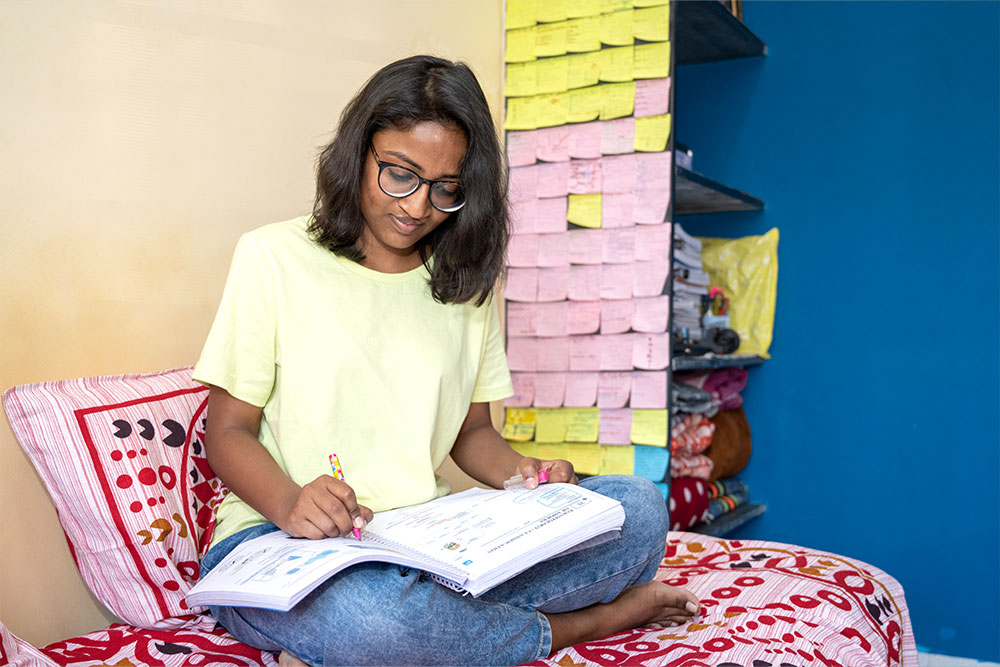
I felt at home in medical school right away. Though there was no one else in my school with a cleft or any other kind of facial difference, all the people there knew about the condition and understood it, so I never had a problem making friends or getting along with my peers there.
Healing Clefts, Changing Minds
I have just graduated as a doctor, and now I have a new ambition: to become a psychiatrist specialising in children with clefts at a Smile Train partner center in India.
As you can see from my story, the psychological issues I have faced because of my cleft have affected me just as much, if not more, than the physical ones. That happened in part because when I was growing up, we didn't have any psychological guidance for treating people with clefts; we didn’t know how they affect your psychology. Yes, I knew something was going on in my mind, but I didn't know what.
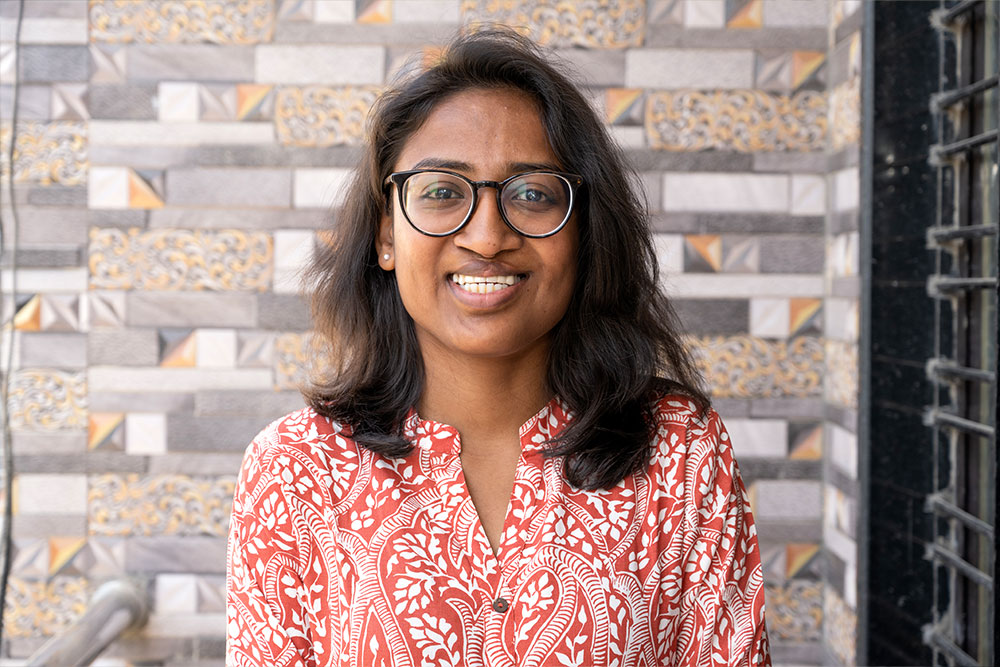
Medical school really helped me to see that because it helped me grow so much. Before, I was so anxious to speak in front of people, but now I have the confidence to do it. I am also working on my communication and social skills and playing badminton with my friends when I get time. Yet, I know I am still the same person as I was in secondary school.
That means we can learn to grow beyond our nature. We just need someone to help us.
What would happen if every child with a cleft received counselling from a psychiatrist on how to develop their interests with confidence and be strong?
I mean, I'm still dealing with this, so I don't know the answers. But I want to help others focus on what they have now and not on what they didn't have in childhood.
Global Expertise, Local Care
And I want to do this as a Smile Train partner not only because they helped me, but also because their model so inspires me. Clefts are a problem everywhere on earth, but they affect people differently in different places depending on the local culture, availability of healthcare, and so much else.
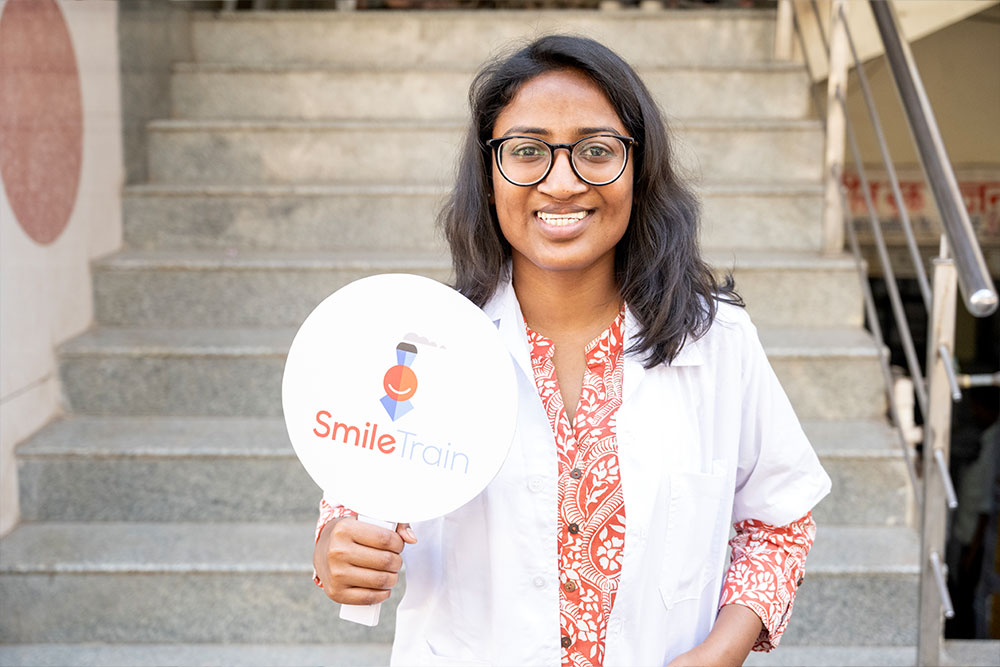
By empowering local experts around the world to provide cleft care in their own communities, Smile Train helps make treatment better everywhere on earth while allowing local staff to tailor programmes to the unique needs of their region. That’s something a medical mission trip from another country could never replicate, and it’s particularly irreplaceable for psychological care.
The Power of an Empowered Cleft Community
In the summer of 2023, I was given a vision of what this model makes possible when I was invited to speak at Cleft Con India, probably the largest-ever gathering of Indians with clefts. Not only did I feel completely comfortable speaking in front of this group of strangers because I knew that we shared having a cleft, but I also learnt so many new things about others’ experiences, how they dealt with them, and how I can, too. It’s so interesting that, though we all have clefts, we don’t all share the same issues. Some people’s problems are mostly financial, others are emotional, and everyone had something new to take from everyone else. That empowers you to implement the solutions others found if that same problem comes to your life.
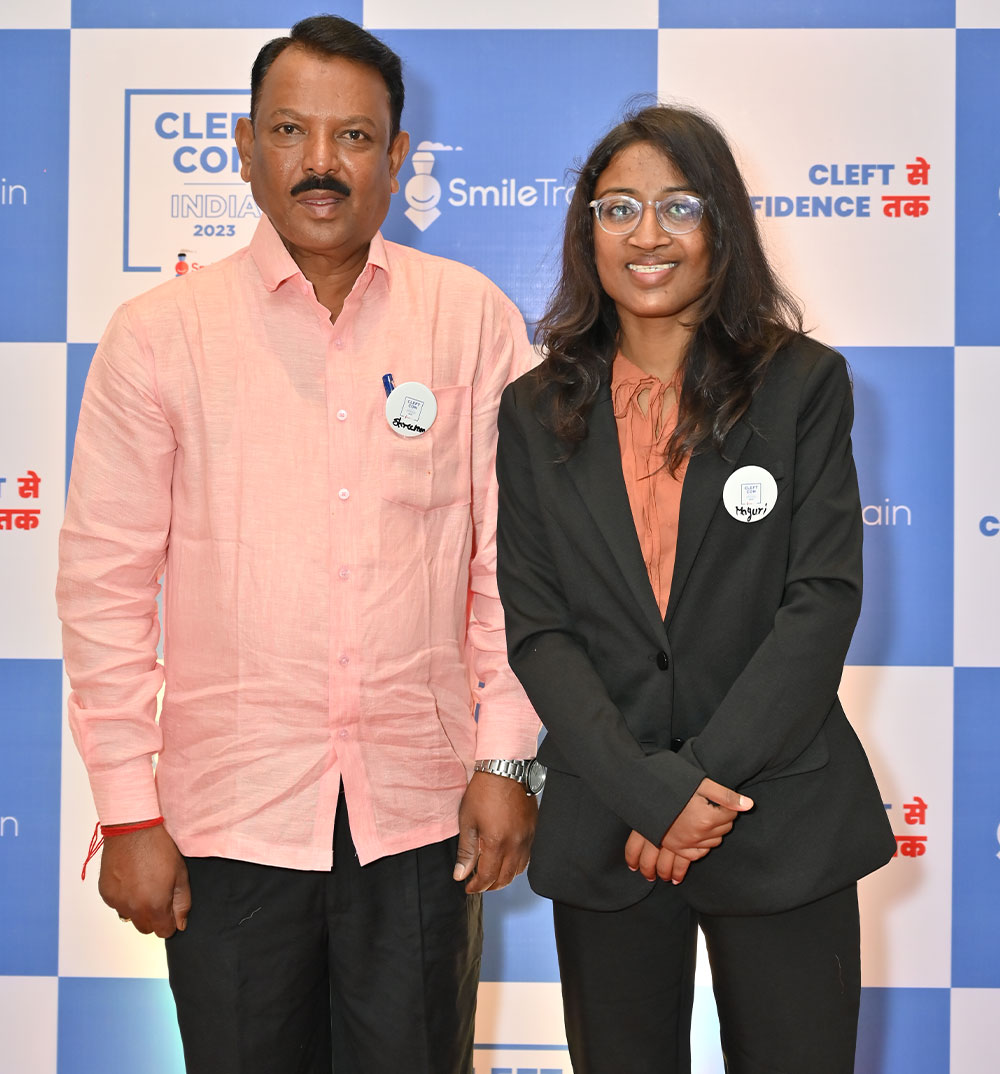
I think that everyone left Cleft Con ready to really run further in life with their full strength. I came away feeling like I was floating on air.
And more determined than ever to give that feeling to every child with a cleft.
The Doctor’s Advice
In honour of International Women’s Day, I want to close with my advice for other girls with clefts:
There are so many big, bad things can happen to you, and this is just one thing that is affecting your life. You don't have to focus on this one thing. Yes, your cleft is probably a problem for you. But everybody has problems, and your cleft is a problem that can be treated. If you are feeling self-conscious, there are people — local Smile Train partners and a big cleft community — who are here to help you work through it. Never let it restrict you from being who you are or who you can be.
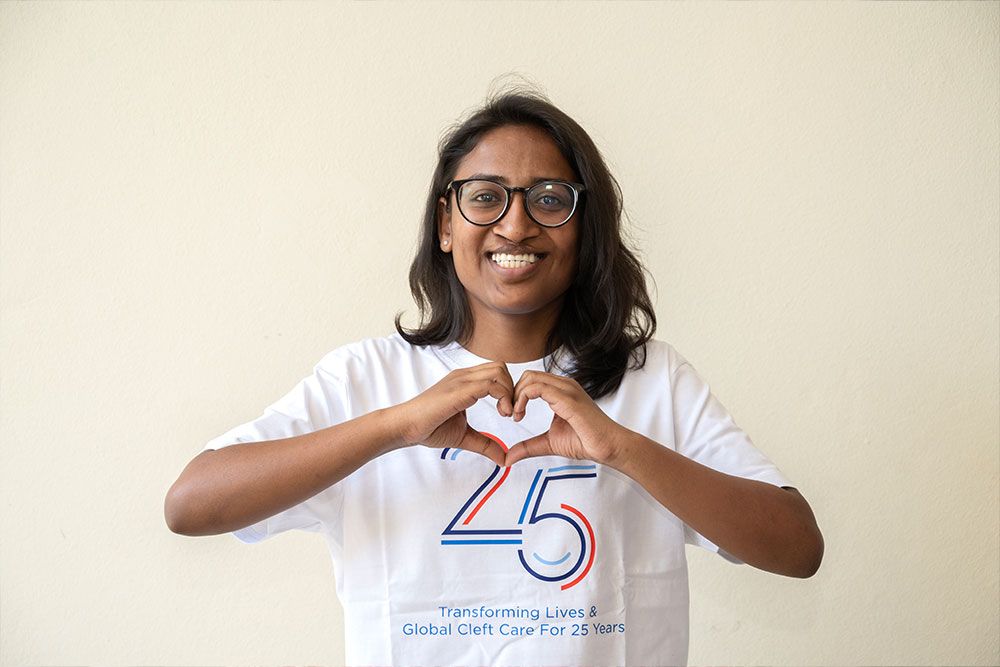
I also want to make sure to say thank you to Smile Train’s donors. You are doing a great social good, giving health and confidence to people with clefts.
Help other girls with clefts live their dreams in 75+ countries with a special International Women’s Day gift to Smile Train.

